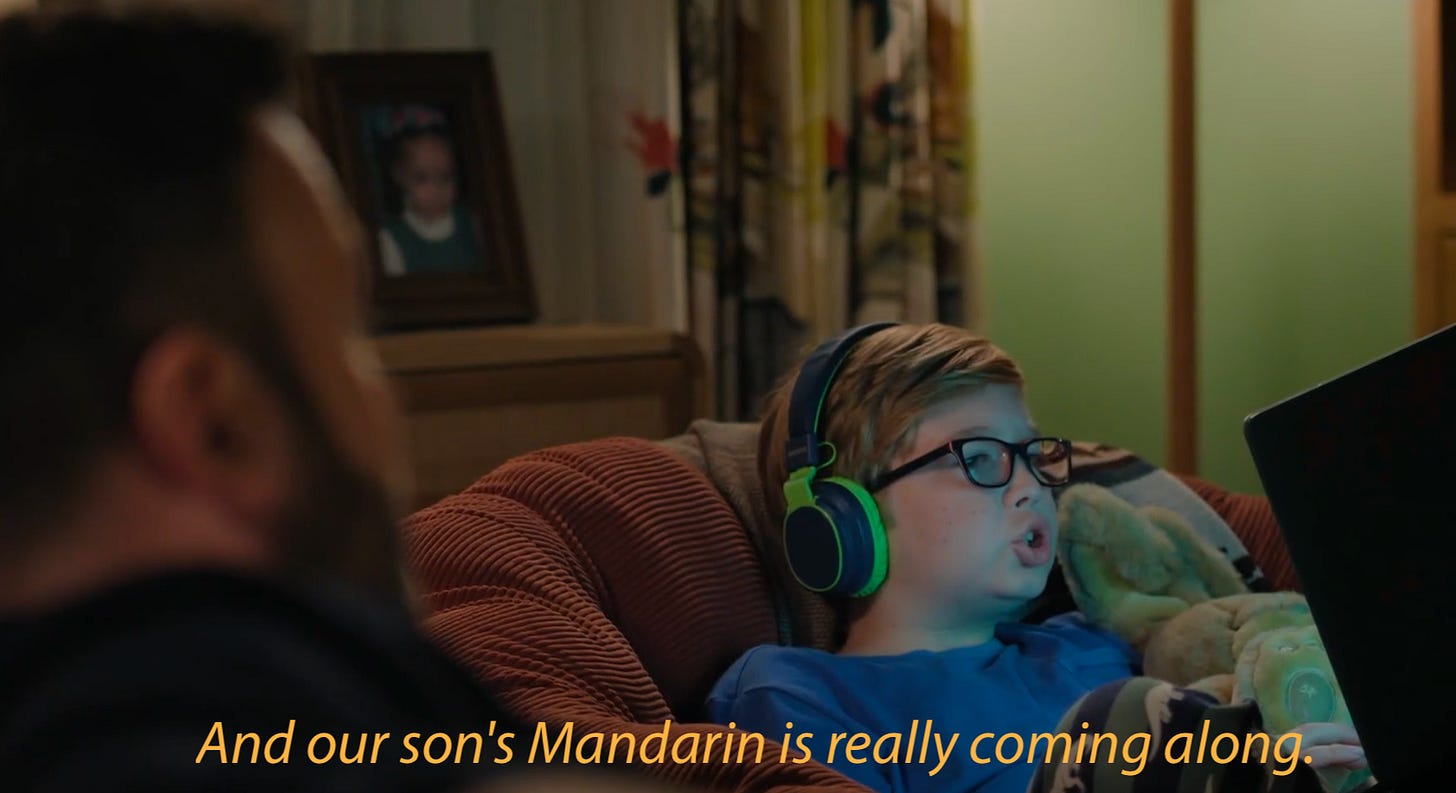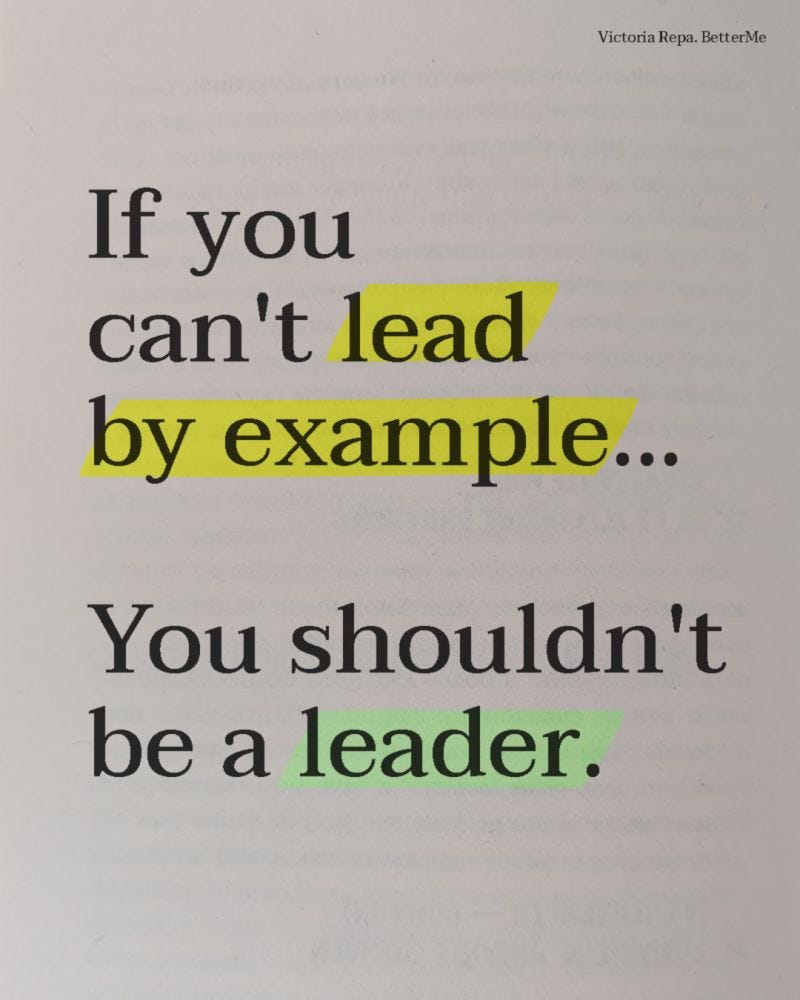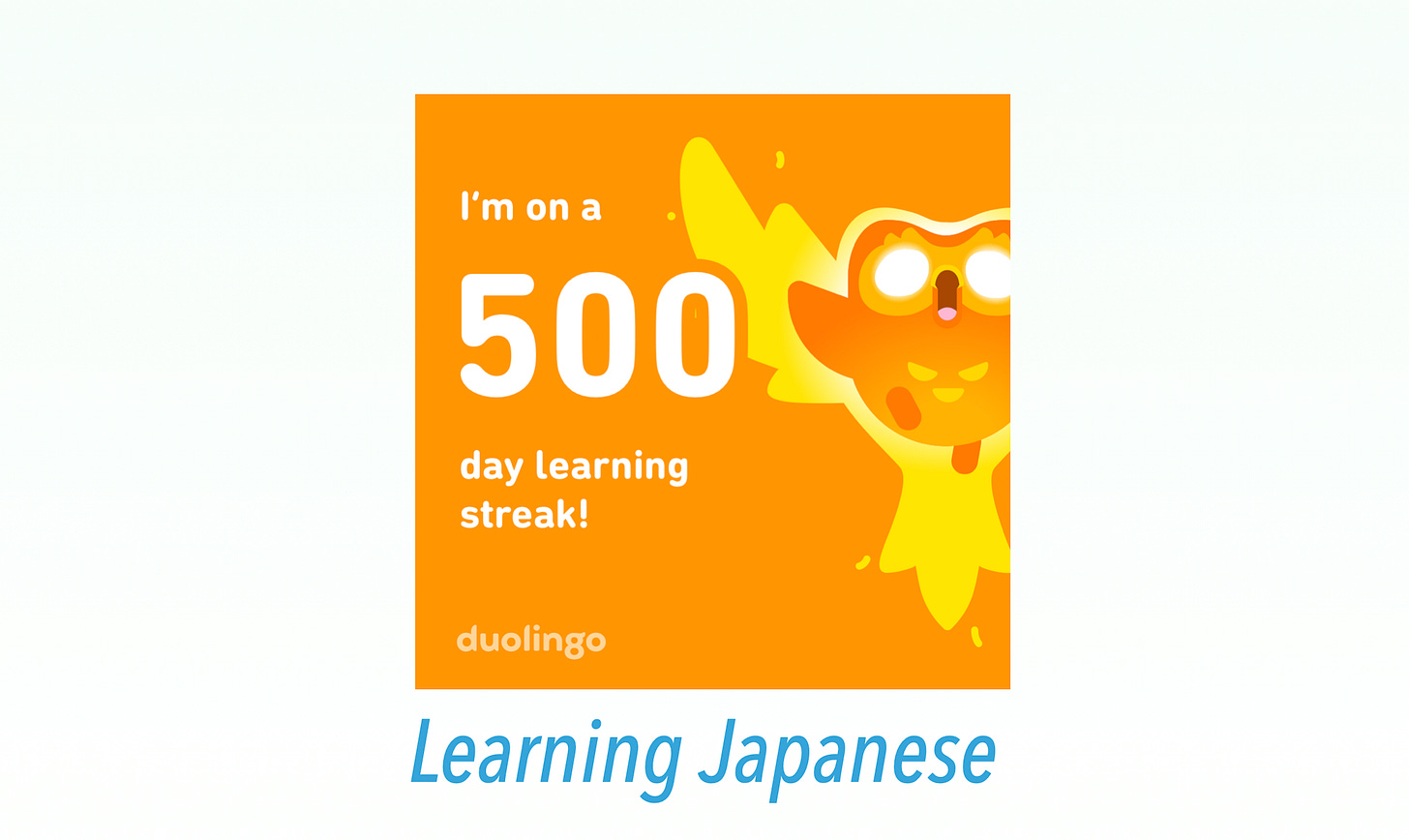Today is my 500th day of learning the Japanese language on the Duolingo App.
It is not hard-core learning, but not totally casual either. I have been listening to “The Michel Thomas Method Japanese Foundation Course”, “Pimsleur Japanese Audiobook” and studying the book “みんなの日本語”.
Some might wonder, “What is the point for people in the semi-retirement age to learn a new language?”
True, the age is the problem. I find it harder to remember vocabulary now, though I used to be quite good at it when I was young. Learning English on my own and achieving a good score (on TOEFL & GRE) to study in Australia (and later live there) truly transformed my life for the better.
Set up an example for my daughter
Social media has a profound impact on the younger generation. Numerous studies show a decline in reading ability and attention span. A natural consequence: lack of the desire to learn new things.
As a test automation coach, I’ve observed significant differences in attitudes toward learning among software professionals, over the past two decades. When I was young, if a senior engineer recommended a book or a new programming language, I would eagerly find more, if interested, purchase books and dive into learning. That’s how I ended up working with several programming languages professionally.

These days, when people come to me for advice, I offer suggestions like, “Learn Ruby.” However, most don’t follow through. Still, those who ask for guidance likely have a better attitude toward learning than most—at least they’re actively seeking knowledge.
My daughter recently told me that one experienced software engineer once proposed studying “The Pragmatic Programmer” book. She was surprised, “He hasn’t read this classic book?!”. Courtney read this book as a freshman at Uni, of course, I made her read it.
Learning itself can be fun. While reading blog articles (like this one) and watching tutorial videos count as learning, reading books remains the best method: the content is more organized and at least less prone to distractions.
My favourite interview question: “What software engineering books you have been reading recently?”
Frankly, my daughter isn’t a highly self-motivated person, unlike the boy below.

This means I need to set up an example, probably one thing I can do (not talk) as a father.

“If I want my daughter to learn a skill, I would do/learn it first, consistently for a long time. It’s not about the outcome, but the attitude.” - Zhimin Zhan
Power of Role Models
My uncle, who passed away a few years ago, was a role model for me. He was fluent in Chinese, Japanese, and English, and even in his 80s, he could speak several Chinese dialects, including Cantonese. For most of his life, he worked as a general manager at Wang Laboratories Japan (Wang was a US tech giant, at its peak time, employed 33000 people in the 1980s - Wikipedia).
As a foreigner, he achieved a high score on the entrance exam to gain admission to Tokyo University, the most competitive university. Upon my asking, he shared some of his learning tips, which were highly inspiring.
He once told my father, 'One key reason I was able to hold this position for so long is because I could speak three languages.'
Our Family Likes Visiting Japan
Japan is our family’s favourite travel destination. This year, we had a wonderful time spending 4 weeks in the Kyushu region, and we’ve already planned another 3-week trip for next year to visit the Osaka Expo.
Being able to understand and speak a little Japanese will help. Early this year, at Disney Sea (Tokyo), I did find the first use of my poor Japanese language: asking for directions. It was a wonderful feeling.
Working in Japan for a period of time would be fantastic for my daughter, who loves Japanse Manga and Anime.
Prepare for the Digital Nomad Age
Nowadays, remote work is becoming more feasible (COVID certainly speed up that process). Think about it, for IT professionals and content creators, it is possible to live in and experience different cultures while still earning an income. How exciting!
I largely missed out on these opportunities, but who knows, maybe I can still do it, one day.
Above all, I hope my daughter has a better life experience than I did. I foresaw the rise of the Digital Nomad age and made a few key decisions, followed by actions (both she and me), in line with the goal.
Courtney currently works at a FAANG company, which has global branches, and within three years of graduating from university (or six years since high school graduation), she got a promotion. Her Chinese, mostly taught by me, is outstanding for a second language. She can not only listen and speak but also read it fluently. At the age of 22, she is already a press-published book author on Test Automation, despite her day job being back-end API work using Java/JavaScript.
The next goal I’ve set for her is to master conversational-level Japanese. But first, I need to do it myself, at least showing my consistent effort.
Some long-time readers might ask, "How is it possible for you, as a solopreneur, to have so much time? (e.g., accompanying my parents for ~60 days in China for two consecutive years)"
The answer is simple: "End-to-end Test Automation. Automation handles a lot of the work (for my software development, ~70% of SDLC Effort is on Software Testing and Related Activities), which gives me the time, right?" The real question is whether any motivated software professional will recognize and believe in this, and take the initiative to learn and master E2E test automation.
Do you have some learning items to add to your 2025 resolution?
Related reading:




